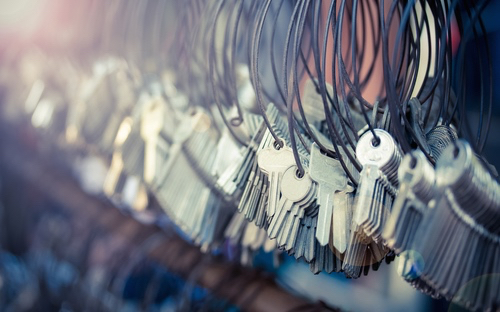Keys have been around for centuries and come in different forms, however the use has always been the same, to enable and operate a lock. The purpose in which has always been the same, to provide access or control to some asset of value and reduce risk. Think of safes or strongboxes, rooms, data centres, prison cells or even your house or car, all of which require keys to access.
As technology evolves, digital keys such as key cards made of plastic and smart keys (or virtual keys) entered the market. One thing remains the same; the requirement for authorisation to access valuable or risky goods is pertinent and physical keys will most likely remain in our foreseeable future.
In the consumer segment, a variety of keys provides access to the home, car, windows, mailboxes and possibly a safe. The set of keys are kept with the individual.
In an enterprise environment where many keys allow access to low and high value items, a solution providing key safe management can be utilised to restrict access of individuals to the right keys at the right time, guided by rules set by the organisation. Picture a contracted cleaner who had access to keys where valuable goods were kept instead of areas that required maintenance. Would this be a concern to the organisation?
Key management typically includes a location where keys are kept and labelled and can be monitored and accounted for. For locations where keys can access highly valuable items or persons, a key safe solution controlled by pre-configured biometric rules could be a good solution.
What does this mean exactly?
Using a biometric mode of identification such as fingerprint, iris or facial recognition and pre-configured rules applicable to a certain individual or a group of people, organisations can control and report on key ‘movement’, keys being checked out or back in.
What are the benefits?
- Reduce manual errors or misconduct – giving the wrong key to the wrong person is prevented when rules are pre-set per individual.
- Improve reporting and compliance – access transaction history and identify who has certain keys at a certain point in time.
- Reduce cost and improve processes – centrally managed access control to key safe means less paperwork whilst maintaining an audit trail for the organisation.
If your organisation depends on keys and you are interested in finding out more about adding key safe management solutions to your business, Argus can help scope out the business requirements and provide a suitable solution whilst adding value to your current processes.
Follow our blog or contact us today.

